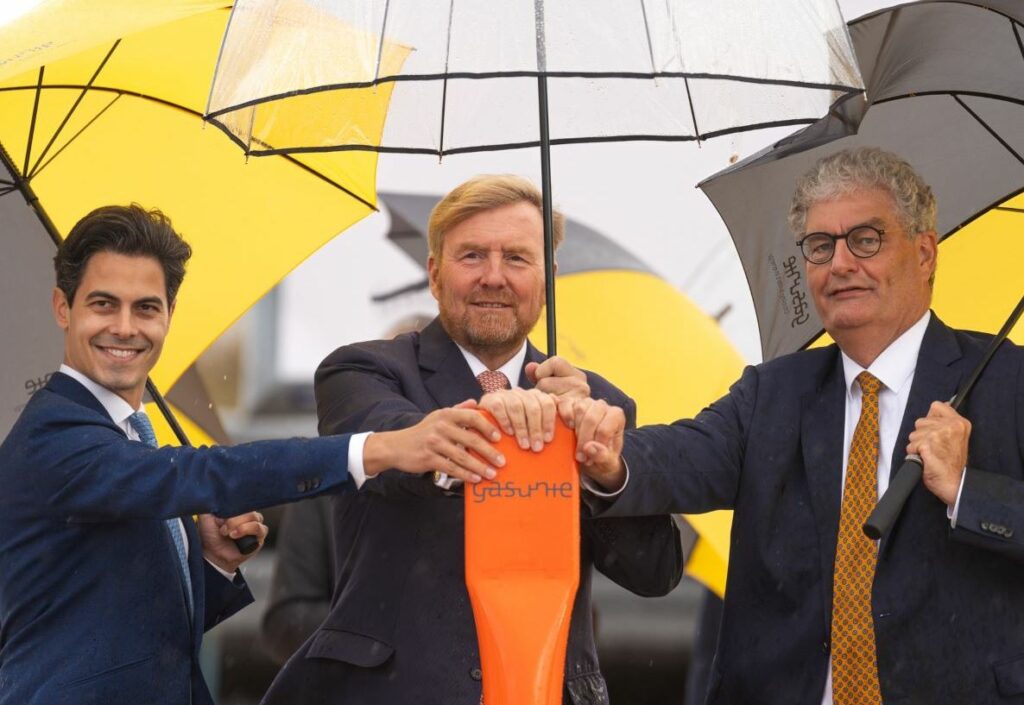In a resounding step toward a greener future, King Willem-Alexander of the Netherlands officially opened the first phase of the national hydrogen network in Rotterdam.
The inauguration marks the beginning of an extensive infrastructure that will connect the main industrial areas of the Netherlands not only to each other but also to neighboring countries, including Germany and Belgium. This ambitious undertaking is being realized by Gasunie, the Dutch natural gas infrastructure operator. Minister Jetten for Climate and Energy was also present at the inaugural ceremony, emphasizing the government’s commitment to renewable energy.
The Netherlands is determined to establish itself as a key player in the realm of renewable energy, and a robust hydrogen infrastructure is essential for this vision. It’s estimated that around half of the required hydrogen will need to be imported, complementing domestic production. To accomplish this, the Netherlands is actively seeking international partnerships in the hydrogen sector, aiming to foster collaboration and trade links with numerous nations.
The first section of this extensive hydrogen network is slated to become operational in 2025. Stretching over 30 kilometers in Rotterdam, it will run from the Second Maasvlakte to Pernis. In the grand scheme, the complete 1,200-kilometer national network will primarily repurpose existing natural gas pipelines. This efficient approach leverages the existing infrastructure to facilitate a seamless transition toward hydrogen. Large-scale hydrogen production facilities, import terminals located in sea ports, and a plethora of domestic and international businesses committed to sustainable hydrogen usage will all become interconnected through this network.
At the inauguration event, Minister Jetten and Gasunie CEO Han Fennema took the stage to underscore the significance of hydrogen as a driving force in the transition to renewable energy. Delegates from various social and business organizations also joined the discussion. Following the official opening, King Willem-Alexander took a guided tour of the construction site, led by Gasunie staff members who demonstrated the unique technology behind tapping into hydrogen pipelines. Subsequently, the King addressed an array of stakeholders on the pivotal role of sustainability in business, hydrogen’s place in a sustainable energy framework, hydrogen transportation, and import alternatives.
The Netherlands’ commitment to establishing a robust hydrogen network not only showcases their dedication to sustainability but also reflects a broader global shift toward renewable energy solutions. This ambitious project holds the promise of not only reducing the nation’s carbon footprint but also fostering international cooperation in the pursuit of cleaner, more sustainable energy sources. As the first phase takes shape, the Netherlands is on its way to becoming a hub for renewable energy, where the green potential of hydrogen knows no bounds.
